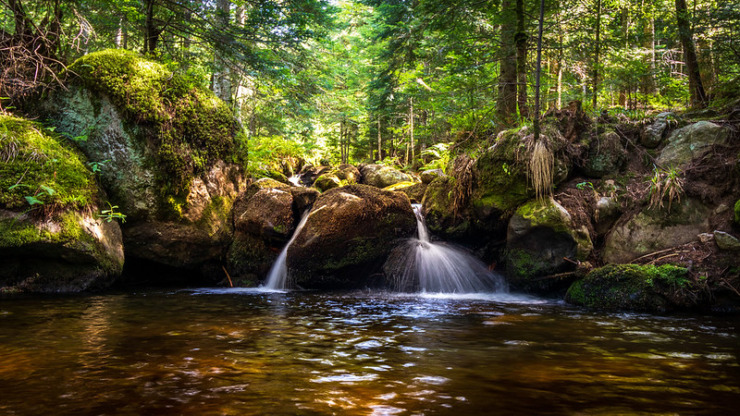Grounded in the Missouri Ozarks, the Poems of Dave Malone Are Universal
I live in a suburb of St. Louis. If asked what they know about the city, most people might think of the Gateway Arch on the riverfront, or the St. Louis Cardinals. Before I moved here more than 40 years ago, that was all I knew. Living here, I’ve found my most surprising experience to be living in a hilly city. St. Louis is in the foothills of the Missouri Ozarks. Drive southwest, toward Springfield, and the hills become increasingly more serious.
I think of the Missouri Ozarks as Dave Malone country. His poetry springs from the Ozark landscape, and it’s not all about hills. It also springs from the people of the Ozarks, his own family, the people he grew up with, and the people he knows. This is not the Winter’s Bone or Ozark of Hollywood’s imagination, but the real landscape of where one grows up, and where one’s family and friends still live.
As the poems of Malone’s newest collection, Tornado Drill, demonstrate, that landscape is not so different from the ones the rest of us grew up in, and live in. Safety drills in school? Check. Your first swimming lessons? Check. Youth camp? Check. Crazy experiences with friends that you hope your parents never find out about? Check. (To be honest, I don’t remember tornado drills where I grew up in New Orleans. Tornadoes weren’t an issue for us back then; we worried more about hurricanes, for which you didn’t crouch under your school desk. And nuclear bombs, for which you did.)
There’s more. Malone divides this collection into five parts: Growing Up, Town, Memory, Quarantine, and Finning the Deep. And the poems all emerge from the Ozark soil, but they are also recognizable even if you’re a flatlander (which I am by birth). This is personal poetry, written from experience but written from the heart. It’s poetry that acknowledges its inspiration, be it Pentecostal ladies, reading a poem by Philip Larkin at the lake, the quarantine of COVID, or a longtime schoolteacher.
Malone has an eye for nature; he also has an eye for human nature and human memory. Childhood returns with a rush in the poems, as does youth.
Youth Camp

the early morning light,
a lonesome doe
in the dark woods
approaching without sound—
just the hint of presence,
of blueness,
of breath.
We trekked into the shadows
unsure of our footing
and gained a cemetery of moss,
and with our eyes blind like the dead,
we felt our way to higher ground,
fists groping for the roots of pines—
until the hillside shook
with the stomp of the unknown.

Dave Malone
Malone is the author of six other poetry collections: Under the Sycamore (2011); Poems to Love and the Body (2011); Seasons in Love (2013); View from the North 10: Poems After Mark Rothko’s No. 15 (2013); O: Love Poems from the Ozarks (2015); and You Know the Ones (2017). He’s also published a two-act play, The Hearts of Blue Whales (2013). He lives in the Missouri Ozarks, and a poetry chapbook, 23 Sonnets (2011).
Read the poems of Tornado Drill, and take a walk, like Malone does, in the woods, where “days don’t count … beneath the centuries-old pines / where my grandmother took her solace / on hard farm days.”
Related:
Dave Malone and You Know the Ones
Tweetspeak’s review of O: Love Poems from the Ozarks
Tweetspeak’s review of View from the North 10: Poems After Mark Rothko’s No. 15
Tweetspeak’s review of Under the Sycamore
Journey into Poetry by Dave Malone
Tiny Machine, Love Poem from Dave Malone
Unmarked, Love Poem from Dave Malone
Photo by S@andrine, Creative Commons, via Flickr. Post by Glynn Young.
How to Read a Poem uses images like the mouse, the hive, the switch (from the Billy Collins poem)—to guide readers into new ways of understanding poems. Anthology included.
“I require all our incoming poetry students—in the MFA I direct—to buy and read this book.”
—Jeanetta Calhoun Mish
- “Your Accent! You Can’t Be from New Orleans!” - October 9, 2025
- Poets and Poems: Donna Vorreyer and “Unrivered” - October 7, 2025
- Poet Sidney Lanier and the Lost Cause - October 2, 2025


Bethany Rohde says
Thank you for introducing us to this new collection. Always intriguing to me how writers categorize their poems; I like the way this one is organized.
I have enjoyed many of Dave Malone’s poems over the years. Would love to read this one.